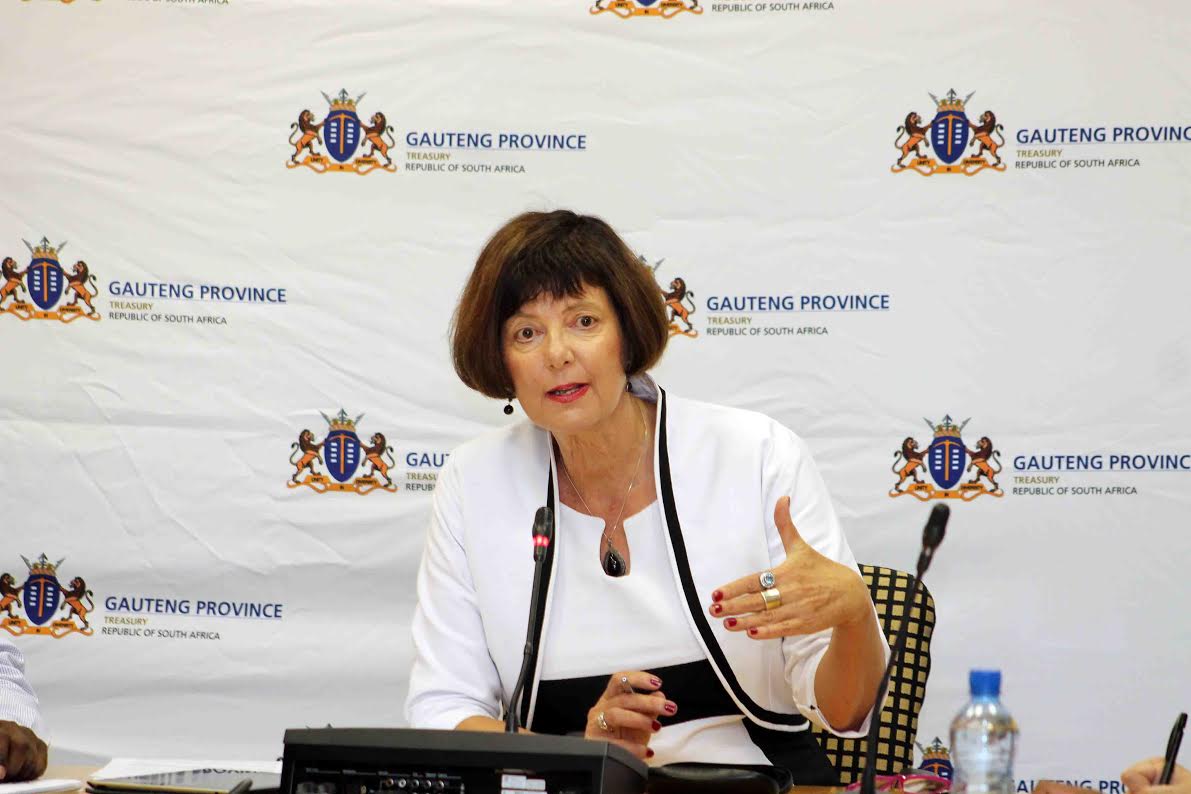March 8, 2017 by Nie Cele No Comments
 Gauteng’s budget supports poor citizens in tough economic times
Gauteng’s budget supports poor citizens in tough economic times
Barbara Creecy is the Gauteng Finance MEC.
Finance MEC Barbara Creecy this morning unveiled Gauteng’s R108-billion budget; saying it will strengthen the transformation of the provincial economy and maintain spending on quality social services to support poor citizens in tough economic times.
The biggest share of the budget will go to the social sector with Health receiving R40.2-billion, Education R40.8-billion and Social Development R4.4-billion in the 2017/18 financial year.
“One in four South Africans live in Gauteng and this places great demands on social departments to meet the ever growing needs of our citizens. In times of fiscal consolidation at national level, we developed a Revenue Strategy, to raise R15.6- billion over the past two and half years to fund increasing demands primarily in education and health and social services,” she said.
The 2017/18 budget is positioned to support efforts by the provincial government to use public procurement as a key instrument to bring about greater inclusion and participation in Gauteng’s economy.
“Over the past three years we have spent R46-billion procuring goods and services from 12 000 registered companies. Ten thousand of these companies, belong to historically disadvantaged individuals including firms owned by black entrepreneurs, women, youth and the disabled. A total of 91% of our expenditure or R42.8-billion has been spent on buying from these companies,” said the MEC.
Significant progress is also being made in support of the Township Economy Revitalisation (TER) Strategy. To date the provincial government has done business with 2813 township enterprises to the value of over R5-billion.
“In addition, we have impacted positively on the lives of 350 000 young people in the province through Premier David Makhura’s Tshepo 500 000 initiative. To intensify the programme going forward, an additional R110.9-million is provided for 2017/18 to support youth employability,” MEC Creecy said.
Gauteng’s infrastructure spend improves service delivery, creates jobs and integrates economic opportunities with transport corridors and human settlements.
“Over the medium term we will spend R43.7-billion on infrastructure; making this the largest provincial infrastructure investment in the country,” MEC Creecy explained.
Human settlements will account for the largest share of the infrastructure spend as the provincial government moves to turn Gauteng into a construction site with the implementation of 31 mega housing projects.
“To ensure infrastructure budgets achieve their targets, funds have been allocated only to those projects that are “shovel ready”, the MEC said; adding that preliminary research by auditing firm KPMG shows that the R30-billion spent on infrastructure between 2013-2016 created 92 000 direct jobs and sustained 69 000 indirect jobs, added R15-billion to household income and generated R6-billion in government revenue.
MEC Creecy reiterated government’s commitment to improve the management of finances and fight fraud and corruption. Ground breaking initiatives such as the Open Tender have led to significant improvement of audit outcomes in both the provincial and local spheres.
“Over the past two and a half years we have saved R414-million through cutting costs on transport, corporate branding, travel and accommodation and redirecting these amounts to citizen’s needs,” Creecy said.
The province will continue with its modernisation efforts. Funds have been set aside to prepare and support the institutionalisation of ICT in schools. Also in support of the province’s goal of providing 100 percent connectivity of government institutions by 2019, allocations to Gauteng’s Broadband Network project increase by R90- million in 2017/18.


